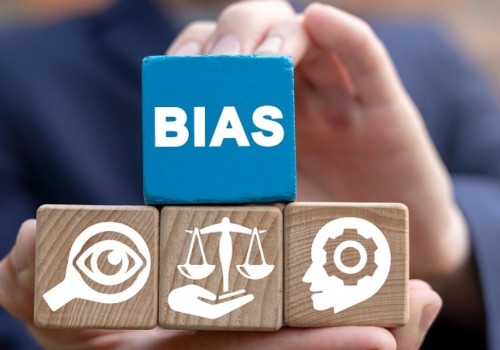Welcome to our comprehensive guide on conflict resolution! In today's fast-paced and constantly changing work environment, conflicts are inevitable. Whether it's a difference in opinions, personalities, or interests, conflicts can arise in any workplace setting. However, the key to successful leadership is not avoiding conflicts, but rather effectively managing and resolving them. In this article, we will explore various leadership strategies and communication techniques that can help you tackle conflicts head-on and find effective solutions.
So, whether you're a manager, team leader, or simply looking to improve your conflict resolution skills, this guide has got you covered. Let's dive in and learn how to navigate conflicts with confidence and grace. In today's fast-paced business world, effective conflict resolution, leadership strategies, and communication skills are essential for success. Whether you're an executive looking to improve decision-making and corporate culture, or a professional seeking professional development tips, this article will provide valuable insights and advice to help you navigate the challenges of the corporate world. First, let's define what conflict resolution is and why it's important in the workplace. Conflict resolution is the process of addressing and resolving disagreements or disputes between individuals or groups.
It involves finding a mutually agreeable solution that satisfies all parties involved and maintains a positive work environment. One of the key factors in successful conflict resolution is effective leadership. A good leader knows how to manage conflicts and maintain a positive corporate culture. They are able to communicate effectively and guide their team towards a resolution that benefits everyone. Some effective leadership strategies for conflict resolution include active listening, empathy, and collaboration. Active listening involves giving your full attention to the person speaking and trying to understand their perspective.
This can help defuse tense situations and show that you value the other person's opinions. Empathy is the ability to understand and share the feelings of others. By putting yourself in someone else's shoes, you can better understand their point of view and find a solution that works for both parties. Collaboration involves working together with all parties involved to find a mutually beneficial solution. Communication also plays a crucial role in conflict resolution.
Effective communication can help prevent conflicts from arising in the first place, as well as facilitate their resolution. Some tips for improving communication in a corporate setting include being clear and concise, using active listening techniques, and being open to feedback. To further illustrate these concepts, let's look at some real-life scenarios. For example, imagine two team members have conflicting ideas on how to approach a project. A good leader would actively listen to both perspectives, show empathy towards each team member's ideas, and work with them to come up with a solution that combines the best of both approaches.
In terms of communication, the leader would ensure that both team members feel heard and respected, and encourage open and honest dialogue to resolve any lingering conflicts. In conclusion, effective conflict resolution, leadership strategies, and communication skills are crucial for success in today's fast-paced business world. By understanding the importance of conflict resolution and implementing effective leadership and communication strategies, you can foster a positive work environment and ensure the success of your team and organization. Remember to actively listen, show empathy, collaborate, and communicate effectively in order to effectively handle conflicts in a professional manner.
Understanding Conflict Resolution
In today's fast-paced business world, conflicts are inevitable. Whether it's a disagreement between colleagues or a difference in opinion between a leader and their team, conflicts can have a significant impact on the workplace if not addressed properly. That's where conflict resolution comes in.It is the process of resolving disputes or disagreements between individuals or groups in a peaceful and respectful manner. Effective conflict resolution strategies can help improve workplace dynamics, foster better relationships, and ultimately lead to a more positive and productive work environment.
Effective Leadership Strategies
In today's fast-paced business world, effective leadership strategies are crucial for managing conflicts and promoting a positive corporate culture. When conflicts arise within a team or organization, it's important for leaders to step in and address the issue before it escalates. By implementing the following tips, leaders can effectively manage conflicts and create a more harmonious work environment:1.Encourage open communicationOne of the key components of effective conflict resolution is open communication.Leaders should create a safe and respectful space for team members to express their concerns and discuss any issues that may arise. This allows for a better understanding of each person's perspective and can lead to finding common ground.
2.Practice active listening
Active listening is a crucial skill for effective leadership. It involves giving your full attention to the speaker and seeking to understand their point of view without judgement. This can help de-escalate conflicts and promote empathy and understanding among team members.3.Foster a culture of respect
A positive corporate culture is built on a foundation of respect.Leaders should model respectful behavior and encourage team members to do the same. This creates a more inclusive and collaborative work environment where conflicts are less likely to occur.
4.Address conflicts promptly
It's important for leaders to address conflicts promptly and directly. Ignoring or avoiding conflicts can lead to bigger problems down the line. By addressing conflicts head on, leaders can prevent them from escalating and find solutions that work for everyone involved.5.Focus on finding solutions
When conflicts arise, it's important for leaders to focus on finding solutions rather than placing blame.This can help shift the focus from the problem to potential solutions and foster a more productive conversation.
Conclusion
Effective leadership strategies are essential for managing conflicts and promoting a positive corporate culture. By encouraging open communication, practicing active listening, fostering a culture of respect, addressing conflicts promptly, and focusing on finding solutions, leaders can effectively resolve conflicts and create a more harmonious work environment. These skills are crucial for success in today's fast-paced business world and should be constantly developed and practiced by leaders.Communication Techniques for Conflict Resolution
In today's fast-paced business world, effective communication is crucial for resolving conflicts and promoting successful leadership strategies. Without clear and efficient communication, conflicts can escalate and negatively impact decision-making and corporate culture.To help you navigate these challenges, we have compiled practical advice for improving communication in the workplace. First and foremost, active listening is key to effective communication. When conflicts arise, it is important to listen to all parties involved and understand their perspectives without judgment. This shows respect and builds trust, which are essential for resolving conflicts. Another important technique is to use “I” statements instead of “you” statements. This shifts the focus from blaming the other person to expressing your own feelings and needs.
For example, saying “I feel frustrated when you interrupt me during meetings” instead of “You always interrupt me during meetings” can lead to a more productive conversation. Nonverbal communication also plays a major role in conflict resolution. Pay attention to your body language and tone of voice, as they can convey different messages than your words. Maintaining an open and calm posture, making eye contact, and speaking in a neutral tone can help diffuse tense situations. Lastly, it is important to practice empathy and understanding in communication. Put yourself in the other person's shoes and try to see things from their perspective.
This can help build bridges and find common ground, leading to effective conflict resolution. In conclusion, conflict resolution is an essential skill for any executive or professional looking to succeed in the corporate world. By understanding the concept of conflict resolution, implementing effective leadership strategies, and improving your communication skills, you can navigate conflicts in a professional manner and foster a positive work environment. Remember to always approach conflicts with a calm and open mindset, and be willing to listen and compromise. With these skills, you can become a strong leader and contribute to a successful and harmonious workplace.







Leave a Comment